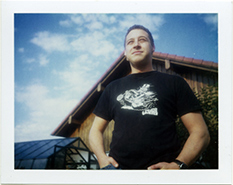My last.fm plug-in for Rhythmbox is now available for Ubuntu 11.10 (Oneiric Ocelot).
You can get the packages by running the following commands in a terminal:
$ sudo add-apt-repository \
'http://blog.blackdown.de/static/debian/rhythmbox/ main'
$ wget https://blog.blackdown.de/static/gpg.asc -O - | \
sudo apt-key add -
$ sudo apt-get update
$ sudo apt-get install rhythmbox rhythmbox-plugins lastfm
Please remember to disable the old Last.fm plug-in before enabling mine (New Style Last.fm Scrobbler). Also note that my plug-in requires the lastfm client to work correctly.
If you are using Ubuntu Unity and you are missing the last.fm client’s systray icon, then take a look at Whitelisting the Last.fm Tray Icon in Ubuntu Unity.
Read more about the plugin and get the source code at Last.fm for Rhythmbox – New Style.
My last.fm plug-in for Rhythmbox is now available for Ubuntu 11.04 (Natty Narwhal).
You can get the packages by running the following commands in a terminal:
$ sudo add-apt-repository \
'http://blog.blackdown.de/static/debian/rhythmbox/ main'
$ wget http://blog.blackdown.de/static/gpg.asc -O - | \
sudo apt-key add -
$ sudo aptitude update
$ sudo aptitude install rhythmbox rhythmbox-plugins lastfm
Please remember to disable the old Last.fm plug-in before enabling mine (New Style Last.fm Scrobbler). Also note that my plug-in requires the lastfm client to work correctly.
If you are using Ubuntu Unity and you are missing the last.fm client’s systray icon, then take a look at Whitelisting the Last.fm Tray Icon in Ubuntu Unity.
Read more about the plugin and get the source code at Last.fm for Rhythmbox – New Style.
While the rhythmbox packages with my scrobbler plug-in for Ubuntu Natty are building, here’s a short tip on how to get the last.fm client to show up in the system tray with Ubuntu Unity.
Run the following command in a terminal:
$ gsettings set com.canonical.Unity.Panel systray-whitelist \
"$(gsettings get com.canonical.Unity.Panel systray-whitelist | \
sed -e "s:\[:\['Last.fm' ,:")"
After logging out and back in, the last.fm client will show up in the systray again.
